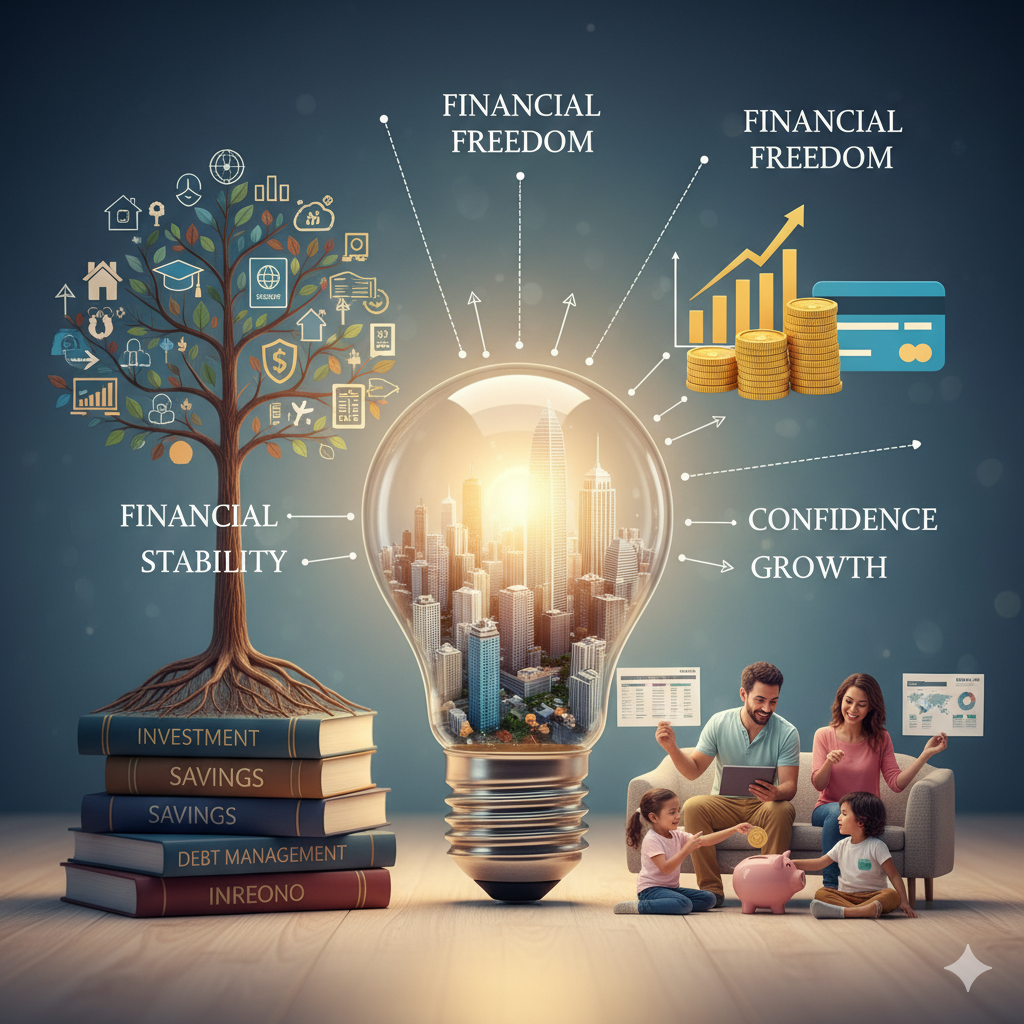Advantages Of Financial literacy is more than just understanding money—it’s the key to living with confidence, independence, and long-term security. In today’s fast-changing world, where personal debt levels are climbing and financial scams are increasingly common, knowing how to manage your money isn’t optional—it’s essential.
According to the OECD, only about 33% of adults worldwide are financially literate—meaning two-thirds of the population may not fully understand how interest rates, savings, or investments work. This lack of financial knowledge often leads to overspending, poor debt management, and increased stress.
So, what exactly are the advantages of financial literacy, and why does it matter for your future? Let’s explore in detail.
 Improved Money Management
Improved Money Management
One of the biggest benefits of financial literacy is the ability to create and stick to a budget. It helps you track your expenses, cut wasteful spending, and set aside savings for both short-term needs and long-term goals.


 Financial Independence and Stability
Financial Independence and Stability
Being financially literate allows you to build stability and independence. You’re less likely to rely on loans from family or fall into debt traps. Financial literacy gives you the knowledge to create wealth over time, securing a stronger financial foundation for yourself and your family.
 Reduced Financial Stress
Reduced Financial Stress
Money-related anxiety is one of the top stressors worldwide. In fact, the American Psychological Association reported that 72% of U.S. adults feel stressed about money. With financial literacy, you gain the tools and confidence to manage debt, plan for retirement, and prepare for emergencies—leading to reduced stress and improved well-being.
 Informed Investment and Savings Decisions
Informed Investment and Savings Decisions
Financial literacy teaches you to differentiate between safe, long-term investments (like index funds and retirement accounts) and risky ventures. Instead of falling for quick-rich schemes, you make smart choices that compound wealth over time.

 Effective Debt Management
Effective Debt Management
Without financial literacy, debt can quickly spiral out of control. Understanding interest rates, credit scores, and repayment strategies equips you to handle loans more responsibly.

 Protection Against Financial Scams
Protection Against Financial Scams
Fraudsters target people who lack financial knowledge. Financial literacy arms you with the ability to spot red flags in shady investment schemes, predatory lending, and online scams.

 Empowerment and Better Decision-Making
Empowerment and Better Decision-Making
When you understand money, you gain confidence in making everyday financial decisions—from comparing insurance plans to negotiating salaries. This sense of empowerment can lead to greater career growth, stronger financial security, and long-term independence.
 Contribution to Economic Stability
Contribution to Economic Stability
Financial literacy isn’t just good for individuals—it strengthens entire economies. When more people make smart financial choices, it reduces default rates, supports healthier banking systems, and contributes to national economic growth.

 Final Thoughts
Final Thoughts
The advantages of financial literacy go far beyond managing money—they open doors to freedom, stability, and peace of mind. By becoming financially literate, you’re not only securing your own future but also contributing to a more stable global economy.

Remember: every step you take toward financial knowledge is a step toward financial freedom.


Pingback: BCI Cotton: A Consumer’s Guide to the Better Cotton Initiative - Gloobia